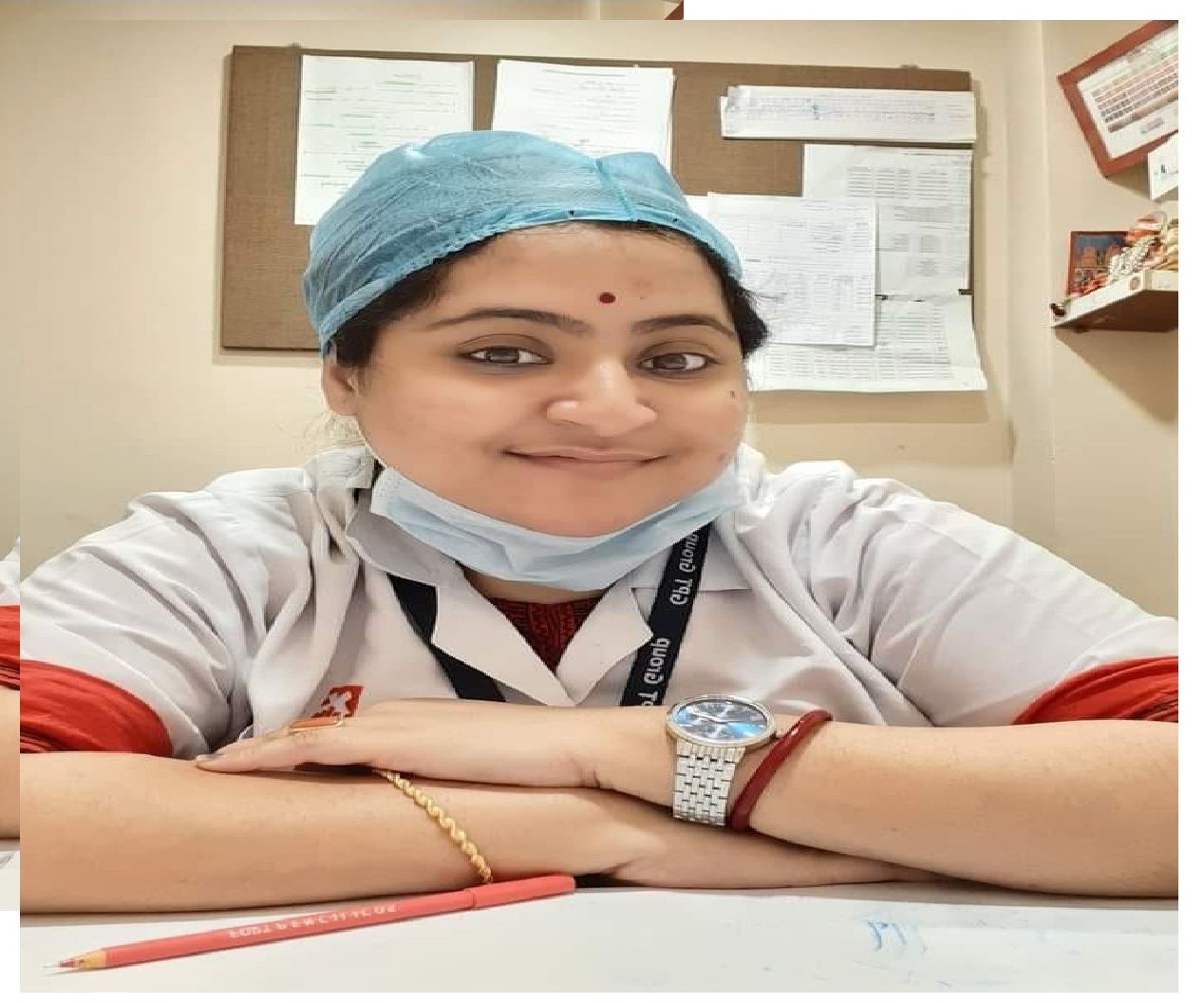Understanding Nutritional Strategies in Anorexia Recovery
Learn about essential nutritional needs, balanced diet requirements, and mental health connections in anorexia recovery. Get expert insights on proper nutrition for healing and recovery.

Written by
Last updated on 3rd Jul, 2025
Anorexia nervosa is a serious eating disorder. It is characterised by extreme food restriction and intense fear of gaining weight. The condition affects both physical and mental health, leading to malnutrition, muscle loss, and organ damage. Proper nutrition forms the cornerstone of anorexia recovery. It helps restore physical health, rebuild lost muscle mass, and repair organ damage.
Adequate nutrition supports brain function and helps manage anxiety and depression common in anorexia. Regular, balanced meals help reset normal eating patterns and restore metabolic health. Read further for detailed insights into adapting a healthy diet for anorexia patients.
Nutritional Needs in Anorexia Nervosa
Recovery requires careful caloric planning under medical supervision. Here are the regular calorie intake requirements for anorexia patients:
Starting calories range from 1,000-1,200 per day
Gradual increases of 200-300 calories every few days
The final goal reaches 2,000-3,000 calories based on the needs
Regular monitoring prevents complications
Small, frequent meals help manage food intake
The body needs specific nutrients to repair damage from malnutrition. Each nutrient serves unique functions in recovery. Here are some essential nutrients which are essential for the recovery of anorexia patients:
Protein repairs muscle tissue and supports immune function.
Complex carbohydrates provide steady energy.
Healthy fats aid brain function and hormone production.
B vitamins support nervous system repair.
Calcium and vitamin D strengthen weakened bones.
Role of a Balanced Diet in Anorexia Nervosa
Macronutrients form the foundation of recovery nutrition. Regular meals help stabilise blood sugar, and a balanced intake of nutrients supports weight restoration. Here’s the balanced portion of nutrients in daily intake:
Carbohydrates: 45-65% of daily calories
Protein: 15-35% of daily calories
Fats: 20-35% of daily calories
Micronutrients support various healing processes. They help repair organ damage and restore normal bodily functions. Here are the roles of micronutrients in the body:
Iron prevents anaemia and fatigue.
Zinc aids in immune system recovery.
Vitamin B12 supports nerve function.
Folate helps produce new cells.
Electrolytes maintain heart function.
Effective Meal Planning
Regular meals support recovery from anorexia. Small, frequent meals help patients manage anxiety around food. Planning reduces stress at mealtimes. Here are a few safe and effective meal-planning strategies:
Starting with familiar foods in small portions
Including all food groups for balanced nutrition
Setting regular meal and snack times
Keeping meal plans flexible but structured
Tracking nutrients rather than calories
Including protein in every meal
Choosing calorie-dense foods when appropriate
Meal support helps anorexia patients maintain eating schedules. Creating a calm environment reduces anxiety during meals. Support from family or caregivers improves success rates. Here are a few tips to encourage meal consumption:
Using smaller plates to make portions less overwhelming
Allowing extra time for meals without rushing
Creating a positive mealtime atmosphere
Offering companionship during meals
Practicing mindful eating techniques
Celebrating small victories
Keeping comfort foods available
Mental Health in Anorexia Nervosa
Proper nutrition directly impacts brain chemistry and mental well-being. Poor nutrition can worsen anxiety, depression, and eating disorder symptoms. Here’s how regular, balanced meals help stabilise mood and reduce psychological stress:
Balanced blood sugar levels reduce anxiety and mood swings.
Omega-3 fats support brain function and emotional stability.
Amino acids help produce mood-regulating neurotransmitters.
Vitamin deficiencies can worsen depression symptoms.
Regular eating patterns create psychological security.
Structured meal plans provide both physical and emotional support during recovery. Following a consistent eating pattern helps rebuild a healthy relationship with food. Here is how a proper diet provides psychological support to anorexia patients:
Regular meals create daily stability and routine.
Successful eating experiences build confidence.
Family meals encourage social support.
Meal planning reduces food-related anxiety.
Small, frequent meals feel less overwhelming.
Challenges and Solutions in Diet Management
Recovery from eating disorders presents unique challenges. Patients often struggle with fear of food and meal timing. Physical symptoms can complicate nutrition intake. Below are common nutritional challenges for anorexia patients:
Fear of certain food groups
Difficulty with portion sizes
Meal timing anxiety
Physical discomfort after eating
Social pressure around meals
Perfectionist tendencies with food
Support systems help manage recovery challenges. Professional guidance ensures safe progress. Regular monitoring helps adjust strategies as needed. Below are a few strategies to overcome dietary challenges:
Working with registered dietitians
Creating backup meal plans
Practicing coping strategies
Joining support groups
Keeping recovery-friendly snacks available
Documenting progress and challenges
Developing stress management techniques
Help from Healthcare Professionals
Professional nutritionists and dietitians guide people toward better eating habits. They create personalised meal plans based on health goals and medical conditions.
These experts understand how different foods affect the body. They help clients overcome eating challenges through evidence-based strategies. Their training allows them to spot potential nutrient deficiencies and suggest proper solutions.
Healthcare teams work together to support dietary health. Primary doctors identify nutrition-related issues during checkups. They refer patients to specialists when needed.
Mental health professionals help with emotional eating patterns. Physical therapists suggest diets that support exercise goals. This team approach ensures comprehensive health management.
Support Systems to Treat Anorexia Nervosa
Family members influence eating habits significantly. Supportive families create healthy food environments at home. They encourage better choices and join in healthy meal preparation.
Friends who share health goals provide motivation and accountability. Social support makes dietary changes more sustainable and enjoyable.
Digital platforms offer valuable nutrition information and tracking tools. Mobile apps help monitor daily food intake and progress.
Online communities connect people with similar health goals. Local community centres often provide nutrition classes and workshops.
Food co-ops and farmers' markets make healthy foods more accessible.
Conclusion
Balanced nutrition plays a vital role in managing anorexia nervosa and supporting overall health. A well-rounded diet prevents complications, sustains energy, and aids recovery. Incorporating whole foods, practising portion control, and mindful eating ensures essential nutrients while supporting weight restoration.
Consistency and patience are key to effective dietary changes, as small, gradual adjustments are more sustainable than restrictive approaches. Regular health check-ups and realistic goal-setting provide valuable insights and track progress, fostering long-term success in overcoming anorexia nervosa.
Consult Top Dietician
Consult Top Dietician

Ms. Shruthi Bhargavi
Dietician
9 Years • Msc (Nutrition and Dietetics)
Hyderabad
Apollo 24|7 Clinic - Telangana, Hyderabad

Ms. Merlin Annie Raj
Dietician
13 Years • M.sc Clinical nutrition and dietetics, RD
Hyderabad
Merlin Clinics, Hyderabad

Ms. Anupriya
Dietician
7 Years • B.Sc(Clinical Nutrition & Dietetics),M.Sc(Clinical Nutrition & Dietetics),Certified Diabetes Educator, Certificate course in Renal Nutrition.
Lucknow
Delight Sun Hospital, Lucknow

Ms Suchanda Guha
Dietician
10 Years • M.Sc (Applied Nutrition), B.Sc (Food & Nutrition), Diploma (Yogic Nutrition)
Kolkata
NutriKutir, Kolkata

Ms. Poushali Ghosh
Dietician
9 Years • Msc in Applied Nutrition
Barasat
Diab-Eat-Ease, Barasat
